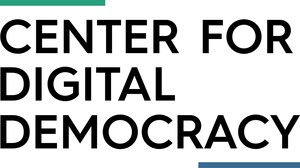U.S. PIRG and CDD urge Consumer Financial Protection Bureau to issue regulations and safeguards for mobile and digital financial services and privacy
Apple iPhone/mobile payments era poses threats and opportunities for consumers, especially those financially at risk
WASHINGTON, Sept. 10, 2014 /PRNewswire-USNewswire/ -- Two leading consumer organizations told the Consumer Financial Protection Bureau (CFPB) today to issue rules so consumers can use mobile financial services without placing their privacy at risk or exposing themselves to new forms of predatory lending and other unfair practices. The groups—U.S. PIRG and the Center for Digital Democracy (CDD)— submitted comments to the agency as part of its inquiry on mobile financial services. They called for a series of safeguards on mobile and other digital financial applications, including on data collection, online financial marketing, mobile payments and other key applications.
"The CFPB has a short window to ensure that the public receives the necessary consumer safeguards, especially for financial applications and their privacy, as they increasingly rely on mobile devices for banking, payments, credit applications, shopping, e-commerce, and other services," explained Ed Mierzwinski, Consumer Program Director for U.S. PIRG. "Otherwise, unfair business practices will become entrenched in the marketplace and hard to stop."
The introduction yesterday of Apple's mobile payment system is just the latest development transforming how Americans save and spend their money in the digital era. The Internet is quickly becoming the foundation for banking and other financial services, from mobile deposits, online loans, and digital payments. Financial services companies will spend $6.20 billion in 2014 promoting lending, credit cards and related services, a figure that is predicted to grow to $9.57 billion by 2018. $2.2 billion was spent this year for mobile financial marketing targeting consumers. Mobile payments and other digital financial services are integrated into a broad set of online industry marketing practices, which require CFPB action, explained the groups.
Industry practices described in the filing as requiring CFPB action include the following:
- Data collection and profiling,
- The use of real-time location,
- How "apps" and other digital financial applications are designed to trigger consumer behavior,
- The special targeting of multicultural groups, including African Americans and Hispanics, and,
- How "Big Data" technologies raise privacy and other consumer protection concerns.
- The growing use of "lead generation" on mobile devices, where a consumer's data can be stealthily collected and sold to credit card, banking and other financial companies so they can be targeted with offers.
- the use of data profiles and location to micro-target consumers in real-time with payday loans and other costly financial products.
"Contemporary mobile practices that take advantage of the powerful capabilities of online financial marketing raise questions about whether consumers will well-served in the long-run, said Jeff Chester, CDD executive director. For example, economically vulnerable consumers—or any other American on a budget—could be bombarded with highly sophisticated offers urging them to spend that take advantage of their data, buying habits, family composition, ethnicity and more. Without fair rules, such practices could undermine their ability to protect their financial security. That's why we call on the CFPB to take action now," he explained.
"Without question, the convenience and power of mobile devices and applications provide financially at risk, unbanked, and other vulnerable consumers greater opportunities to save money on banking transactions and payments, have additional ways to build financial resources, make more effective decisions on purchasing," Mierzwinski concluded. "But few consumers understand or can effectively control how mobile and other digital financial products actually operate; as a result we believe they also pose serious risks unless safeguards are enacted."
U.S. PIRG is the non-profit, non-partisan federation of state Public Interest Research Groups. The PIRGs are public interest advocacy organizations that take on powerful interests on behalf of their members. On the web at www.uspirg.org
The Center for Digital Democracy (CDD) addresses contemporary digital marketing and privacy issues, including their impact on public health, children and youth, and financial services. On the web at www.democraticmedia.org
In March, U.S. PIRG and CDD released the report "Big Data Means Big Opportunities and Big Challenges: Promoting Financial Inclusion and Consumer Protection in the "Big Data" Financial Era." It is available at http://www.uspirg.org/reports/usf/big-data-means-big-opportunities-and-big-challenges.
A copy of the filing is available at: http://www.democraticmedia.org/us-pirg-and-cdd-urge-consumer-financial-protection-bureau-issue-regulations-and-safeguards-mobile-an
SOURCE Center for Digital Democracy
WANT YOUR COMPANY'S NEWS FEATURED ON PRNEWSWIRE.COM?
Newsrooms &
Influencers
Digital Media
Outlets
Journalists
Opted In





Share this article